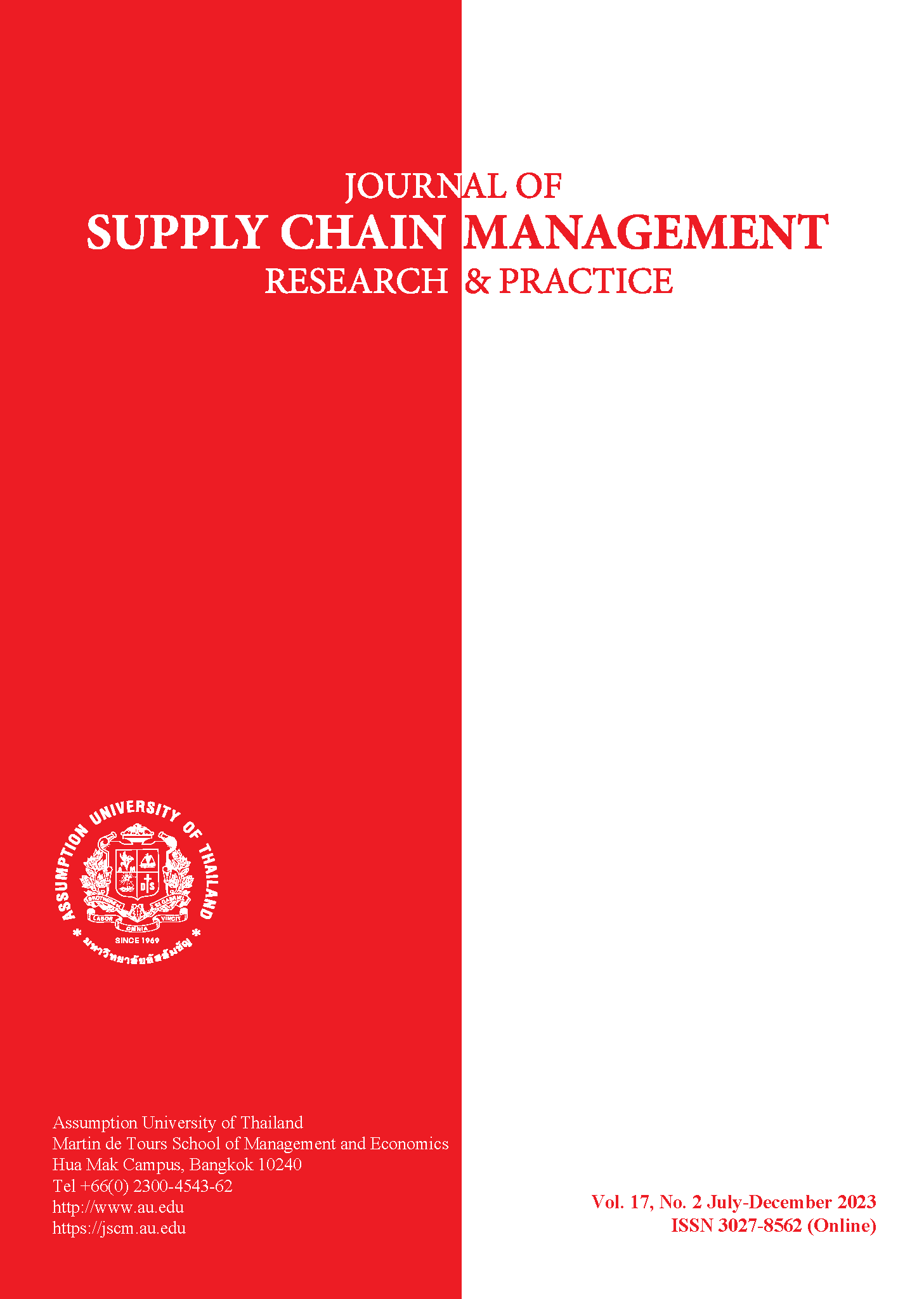REVERSE LOGISTICS PERFORMANCE IN THE THAI AUTOMOTIVE INDUSTRY
Abstract
This article explores the factors that influence reverse logistics performance, as found in the Thai automotive industry. Supply chain integration is proposed as the key influencing construct of the developed reverse logistics performance model. A structural relationship among key constructs was developed based on the arcs of integration concept proposed by Frohlich and Westbrook (2001) in the context of reverse logistics. A questionnaire survey was conducted among 234 first-tier suppliers of major automotive manufacturing firms in Thailand. Structural equation modeling was used to analyse the empirical data. The results indicated that external and internal integration as well as supply chain orientation significantly influence reverse logistics performance. Information system support and resource commitment also have an indirect influence. Supply chain orientation, information system support, and resource commitment were found to lead a firm to initiate and develop external and internal supply chain integration. However, the scope of reverse logistics in this study focused only on product returns for specific reasons, such as defective product or faulty order processing. Other reasons for returning products were excluded.


